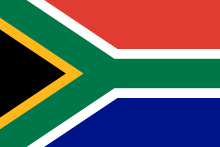
The Commonwealth Games is a quadrennial international multi-sport event among athletes from the Commonwealth of Nations. The event was first held in 1930 and, with the exception of 1942 and 1946, has successively run every four years since. The event was called the British Empire Games from 1930 to 1950, the British Empire and Commonwealth Games from 1954 to 1966, and British Commonwealth Games from 1970 to 1974. Athletes with a disability are included as full members of their national teams since 2002, making the Commonwealth Games the first fully inclusive international multi-sport event. In 2018, the Games became the first global multi-sport event to feature an equal number of men's and women's medal events, and four years later they became the first global multi-sport event to have more events for women than men.

Hendrik Frensch Verwoerd, also known as H. F. Verwoerd, was a South African politician, scholar, and newspaper editor who served as Prime Minister of South Africa and is commonly regarded as the architect of apartheid. Verwoerd played a significant role in socially engineering apartheid, the country's system of institutionalized racial segregation and white supremacy, and implementing its policies, as Minister of Native Affairs (1950–1958) and then as prime minister (1958–1966). Furthermore, Verwoerd played a vital role in helping the far-right National Party come to power in 1948, serving as their political strategist and propagandist, becoming party leader upon his premiership. He was the Union of South Africa's last prime minister, from 1958 to 1961, when he proclaimed the founding of the Republic of South Africa, remaining its prime minister until his assassination in 1966.

The National Party, also known as the Nationalist Party, was a political party in South Africa from 1914 to 1997, which was responsible for the implementation of apartheid rule. The party was an Afrikaner ethnic nationalist party, which initially promoted the interests of Afrikaners but later became a stalwart promoter and enactor of white supremacy, for which it is best known. It first became the governing party of the country in 1924. It merged with its rival, the SAP, during the Great Depression, and a splinter faction became the official opposition during World War II and returned to power. With the National Party governing South Africa from 4 June 1948 until 9 May 1994, the country for the bulk of this time was only a de jure or partial democracy, as from 1958 onwards non-white people were barred from voting. In 1990 it began to style itself as simply a South African civic nationalist party, and after the fall of apartheid in 1994, attempted to become a moderate conservative one. The party's reputation was damaged irreparably by perpetrating apartheid, and it rebranded itself in 1997 before eventually dissolving.

The 1958 British Empire and Commonwealth Games was held in Cardiff, Wales, from 18 to 26 July 1958.

The 1978 Commonwealth Games was held in Edmonton, Alberta, Canada, from 3 to 12 August 1978, two years after the 1976 Summer Olympics was held in Montreal, Quebec. They were boycotted by Nigeria, in protest at New Zealand's sporting contacts with apartheid-era South Africa, as well as by Uganda, in protest at alleged Canadian hostility towards the government of Idi Amin. The Bid Election was held at the 1972 Summer Olympics in Munich.
1994 in South Africa saw the transition from South Africa's National Party government who had ruled the country since 1948 and had advocated the apartheid system for most of its history, to the African National Congress (ANC) who had been outlawed in South Africa since the 1950s for its opposition to apartheid. The ANC won a majority in the first multiracial election held under universal suffrage. Previously, only white people were allowed to vote. There were some incidents of violence in the Bantustans leading up to the elections as some leaders of the Bantusans opposed participation in the elections, while other citizens wanted to vote and become part of South Africa. There were also bombings aimed at both the African National Congress and the National Party and politically-motivated murders of leaders of the opposing ANC and Inkatha Freedom Party (IFP).
The Anti-Apartheid Movement (AAM) was a British organisation that was at the centre of the international movement opposing the South African apartheid system and supporting South Africa's non-White population who were persecuted by the policies of apartheid. The AAM changed its name to ACTSA: Action for Southern Africa in 1994, when South Africa achieved majority rule through free and fair elections, in which all races could vote.

The High Commission of South Africa in London is the diplomatic mission from South Africa to the United Kingdom. It is located at South Africa House, a building on Trafalgar Square, London. As well as containing the offices of the High Commissioner, the building also hosts the South African consulate. It has been a Grade II* listed building since 1982.

Apartheid was a system of institutionalised racial segregation that existed in South Africa and South West Africa from 1948 to the early 1990s. Apartheid was characterised by an authoritarian political culture based on baasskap, which ensured that South Africa was dominated politically, socially, and economically through minoritarianism by the nation's dominant minority white population. According to this system of social stratification, white citizens had the highest status, followed by Indians and Coloureds, then Black Africans. The economic legacy and social effects of apartheid continue to the present day, particularly inequality.

Marsha Cox (née Marescia; born 13 January 1983 in Durban, KwaZulu-Natal) is a field hockey player from South Africa, who was a member of the national squad that finished 9th at the 2004 Summer Olympics in Athens. The midfielder comes from Durban, and is nicknamed Nator. She plays for the provincial team Southern Gauteng.

South Africa first participated at the Olympic Games in 1904, and sent athletes to compete in every Summer Olympic Games until 1960. After the passage of United Nations General Assembly Resolution 1761 in 1962 in response to South Africa's policy of apartheid, the nation was barred from the Games.

New Zealand has competed in all of the Commonwealth Games since the first in 1930, and has won a total of 656 medals including 159 gold.

Nigeria has competed at fourteen Commonwealth Games, from 1950. Nigeria did not attend four Games, in 1962, 1978, 1986 and 1998.
South Africa under apartheid was subjected to a variety of international boycotts, including on sporting contacts. There was some debate about whether the aim of the boycott was to oppose segregation in sport or apartheid in general, with the latter view prevailing in later decades. While the National Party introduced apartheid in 1948, it added sport-specific restrictions from the late 1950s, on interracial sport within South Africa and international travel by nonwhite athletes. The international federations (IFs) governing various sports began to sanction South Africa, both in response to the new restrictions and in reflection of the broader anti-racism of national federations in newly independent postcolonial states. By the early 1970s, South African national teams were excluded from most Olympic sports, although South Africans competed in individual events in some, mainly professional, sports through the 1980s. Although from the mid-1970s the National Party relaxed the application of segregation provisions in relation to sport, this failed to alleviate the boycott, which continued until the end of apartheid.
Foreign relations of South Africa during apartheid refers to the foreign relations of South Africa between 1948 and the early 1990s. South Africa introduced apartheid in 1948, as a systematic extension of pre-existing racial discrimination laws. Initially the regime implemented an offensive foreign policy trying to consolidate South African hegemony over Southern Africa. These attempts had clearly failed by the late 1970s. As a result of its racism, occupation of Namibia and foreign interventionism in Angola, the country became increasingly isolated internationally.

Netball is one of the most popular women's participation sports in South Africa. The sport is also played by a large number of men. It exists in a culture where sport plays an important public and social part of life. The history of South Africa's netball involvement mirrors that of other sports played in the country like rugby union. During the apartheid era, there were many netball facilities available for whites to use, and fewer for people from other race groups. Funding issues and gender issues did not help bridge this gap.

The South African Sports Confederation and Olympic Committee (SASCOC) is the National Olympic Committee (NOC) and National Paralympic Committee (NPC) for South Africa, and the responsible body for South Africa at the Commonwealth Games. It is also responsible for high-performance sport in the country and coordinates the relationship with various international sports federations.
South Africa did not compete at Olympic Games from 1964 to 1988, as a part of the sporting boycott of South Africa during the apartheid era. The South African National Olympic Committee (NOC) was expelled from the International Olympic Committee (IOC) in 1970. In 1991, as part of the transition to multiracial equality, a new NOC was formed and admitted to the IOC, and the country competed at the 1992 Summer Olympics held in Barcelona.
Rugby union and apartheid had a complex and supportive relationship. From 1948 to 1994, international rugby relations with the country, and also the non-integrated nature of rugby within South Africa drew frequent controversy. South Africa remained a member of the International Rugby Board (IRB) throughout the apartheid era.

The flag of South Africa from 1928 to 1994 was the flag of the Union of South Africa from 1928 to 1961 and later the flag of the Republic of South Africa until 1994. It was also the flag of South West Africa to 1990, when that territory was under South African administration. Based on the Dutch Prince's Flag, it contained the flag of the United Kingdom, the flag of the Orange Free State and the flag of the South African Republic in the centre. A nickname for the flag was Oranje, Blanje, Blou.














